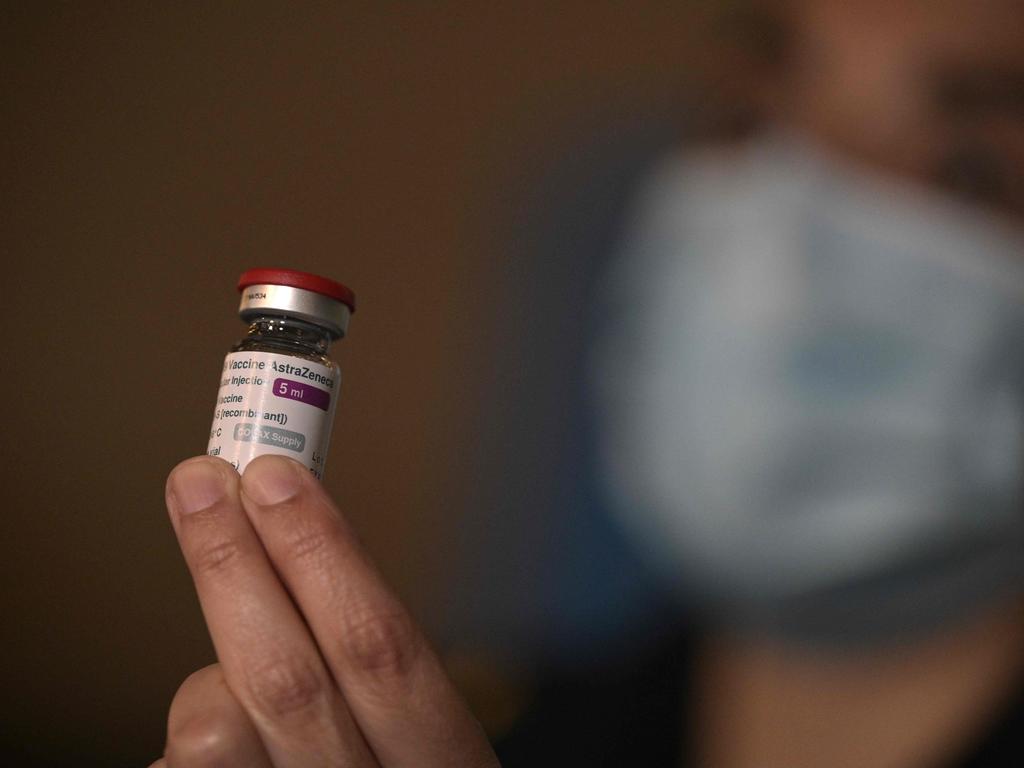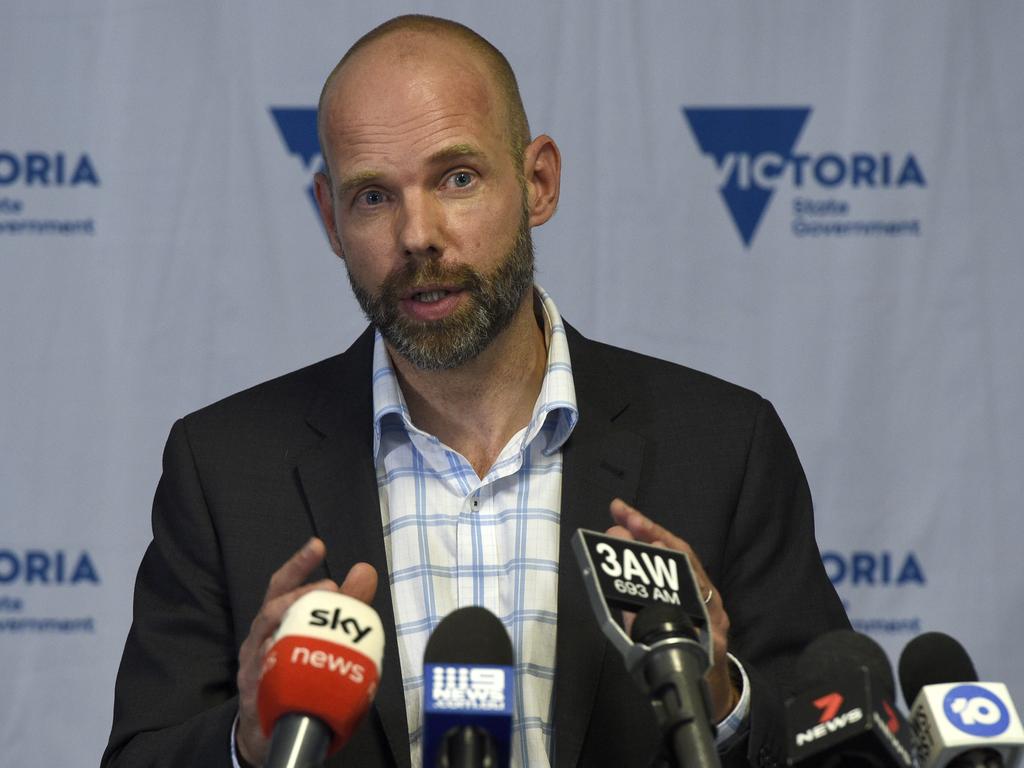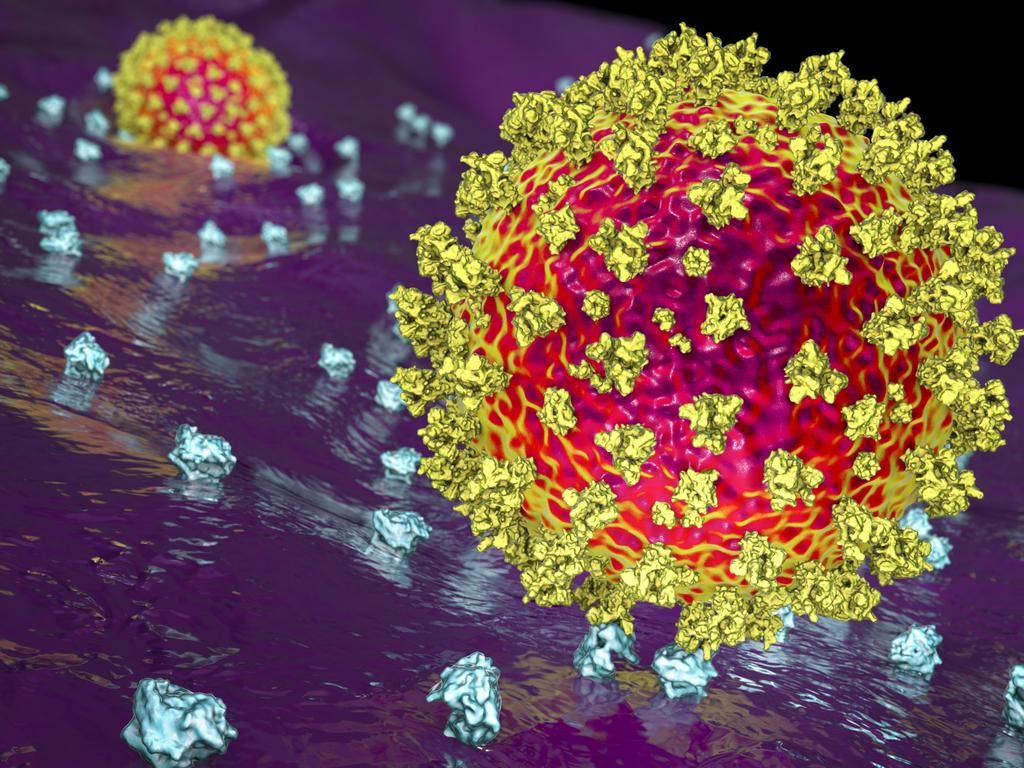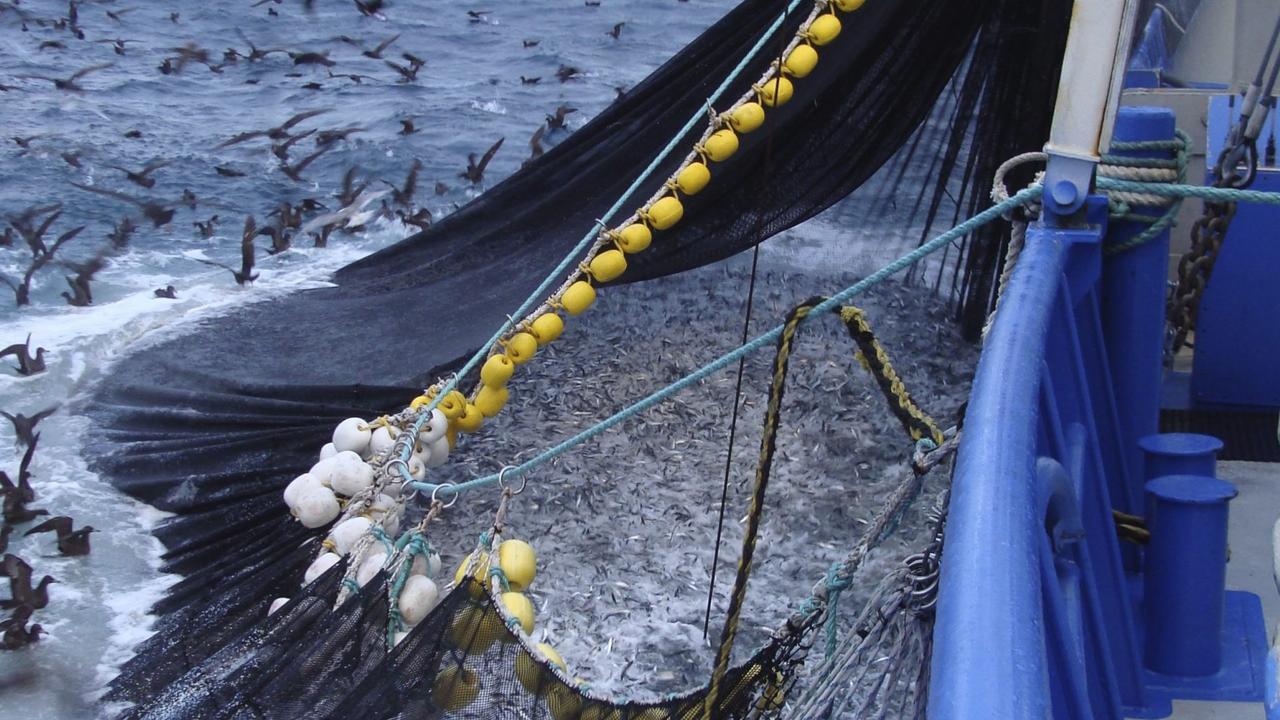Coronavirus: Vaccine confusion as clots force jab switch for two million
Scramble on to switch more than two million Australians to the Pfizer vaccine after AstraZeneca ruled out for 50-59s.
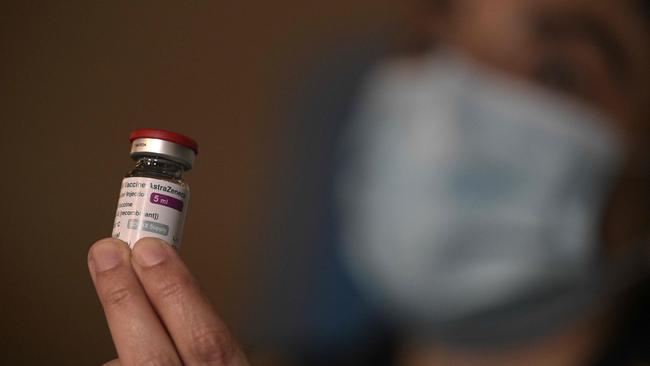
Health authorities are scrambling to switch more than two million Australians aged under 60 to the imported Pfizer Covid-19 vaccine after fresh cases of a rare bloodclotting syndrome ruled out the AstraZeneca jab for people aged 50 to 59.
The decision, announced by Health Minister Greg Hunt on Thursday, comes as 815,000 people aged 50-59 wait for their second AstraZeneca jab, having already received the first.
Health authorities urged people in this category to go ahead with their second AstraZeneca jab, declaring it safe.
More than 1300 GP surgeries will now begin administering Pfizer, while the number of commonwealth respiratory clinics administering vaccines will be lifted from 21 to 136 as vaccine bookings are opened up to everyone over the age of 40.
Federal health officials conceded on Thursday that the change would slow down the vaccine program over the next few weeks.
But the federal government insisted all eligible Australians would have the opportunity to be vaccinated by the end of the year despite 2.1 million people aged between 50 and 59 now requiring access to Pfizer doses imported from Europe instead of the locally made AstraZeneca jab.
Health Minister Greg Hunt asked Pfizer to speed up delivery of the rest of the mRNA vaccine doses Australia was due to receive by the end of this year.
He said Pfizer had promised to deliver 1.7 million more doses by the end of this month and 2.8 million doses next month – more than was expected.
“Are we on track to offer every Australian a vaccine who is eligible during the course of 2021? The answer remains, and the advice we have, is yes,” Mr Hunt said.
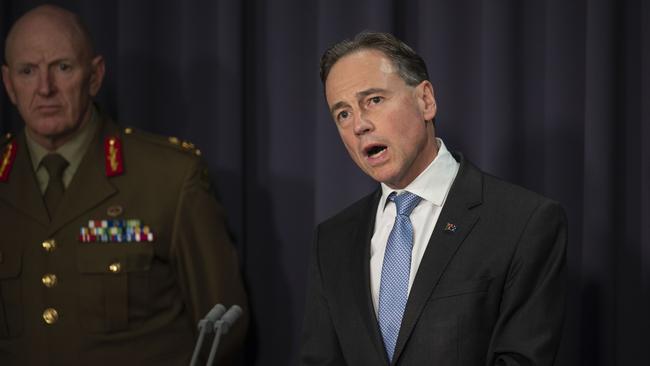
The switch left doctors struggling to communicate the new advice to patients and GP surgeries were inundated with phone calls from concerned older people who had yet to receive their vaccine, and from those who had already received one dose of AstraZeneca.
“There’s many people wondering what to do now,” said Melbourne GP and former federal Australian Medical Association president Mukesh Haikerwal, whose surgeries were fielding constant phone calls.
“Literally on Thursday morning we were saying to everyone up until midday there’s no problem getting your vaccine if you’re over 50, and now all of a sudden we’ve been told to say over 60. I think the confidence in the system is in need of some repair.”
The decision to switch 50 to 59-year-olds to Pfizer came after Australia’s top vaccine advisers on Thursday recommended the AstraZeneca vaccine be restricted to those over the age of 60 after new cases of a rare blood-clotting syndrome in younger people.
The Australian Technical Advisory Group on Immunisation issued the new advice following 12 new blood-clot cases, seven of them in those aged between 50 and 59, and the death of a 52-year-old patient who received AstraZeneca.
Concern had been growing among members of ATAGI for weeks following an increase in cases of thrombosis with thrombocytopenia (TTS) following an AstraZeneca jab in people aged 60 and under in the UK.
The total number of cases of the rare blood clotting syndrome recorded in Australia is now 60, with two deaths.
ATAGI recommended that the risk from the vaccine in that age group outweighed the benefit, prompting the new advice.
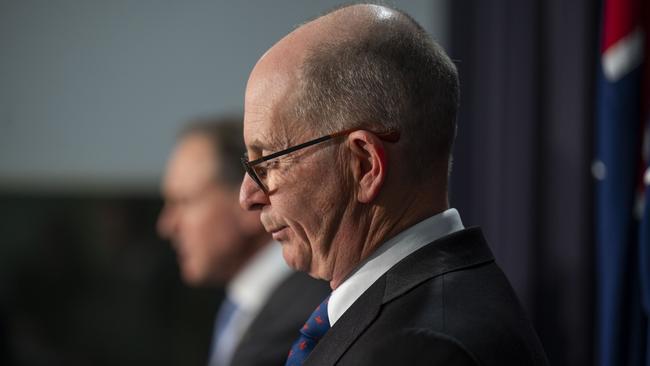
Chief medical officer Paul Kelly said: “With seven new cases of this rare TTS in the last week between people aged 50 to 59, that has changed the rate of that particular issue in that age group to the point where the rate is very similar to the under-50s.”
The federal government is advising almost four million Australians who have had one dose of AstraZeneca to go ahead and book their second shot despite the new advice, with the risk of blood clots following a second dose described as extremely remote.
The chance of the rare blood clotting syndrome following a second shot is about 20 times less than the already extremely small risk of blood-clotting following a first dose.
Health department secretary Brendan Murphy said: “Our message is clear: to those 3.8 million Australians who have had their first dose of AstraZeneca, go and get your second dose.
“It’s a completely different picture for second doses. People over 60 should still be rolling up to their GP. You need that full protection.”
While the government said it had enough Pfizer for the whole population, younger people were urged to “be patient” as demand surged for the mRNA vaccine.
State governments who had opened up Pfizer to those aged over 30 moved to restrict access to the jab following the change in the national rollout.
The Australian Medical Association sought to assure the public they should not be worried by the changed advice.
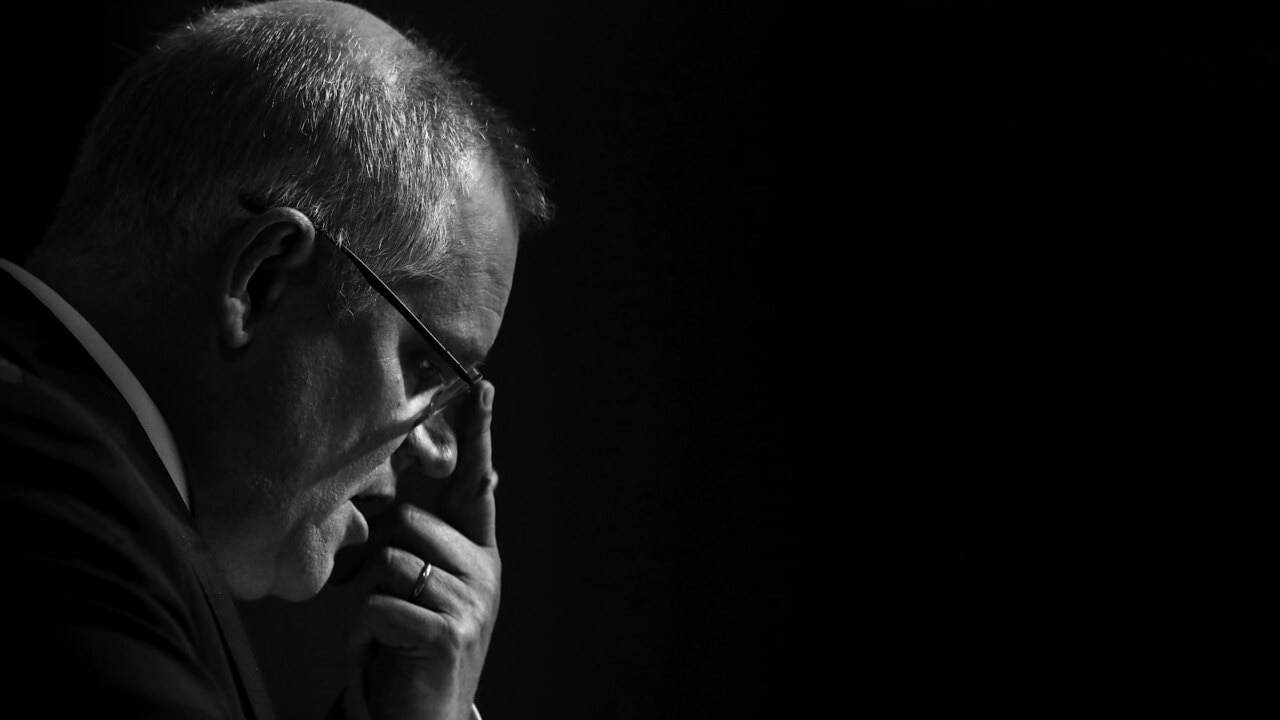
“The Australian community can be reassured that the commonwealth continues to take the advice of medical experts on how best to manage the risk of COVID-19 and target our vaccine roll out,” said the association’s president Omar Khorshid.
“People who have had the AstraZeneca vaccine should not be alarmed by this decision.”
He said the risk of serious complications including blood clotting from the AstraZeneca vaccine were “very low”.
“Australia is now very good at detecting clots in patients who’ve had the AstraZeneca vaccine,” Dr Khorshid said.
“More importantly, we have developed very effective protocols and treatments that mean most people fully recover from these complications.”
He said that Australians over the aged of 60 were at a higher risk of becoming seriously ill if they contracted Covid-19.
Labor used question time on Thursday to seize on the changed advice, asking why it had not sought an early agreement with Pfizer for access to the vaccine.
Mr Hunt said the government had commenced negotiations with Pfizer at the “first time they were willing to do that”.
“After the end of June when Pfizer lifted the ban on being able to have negotiations, we had informal discussions because we had sought to commence them at the earliest possible date,” the Health Minister said.
“We secured the earliest possible availability of doses as on all the advice that I have.”
Deputy Labor leader Richard Marles said Scott Morrison had “bet the house on AstraZeneca and now this rollout is in complete disarray”.

